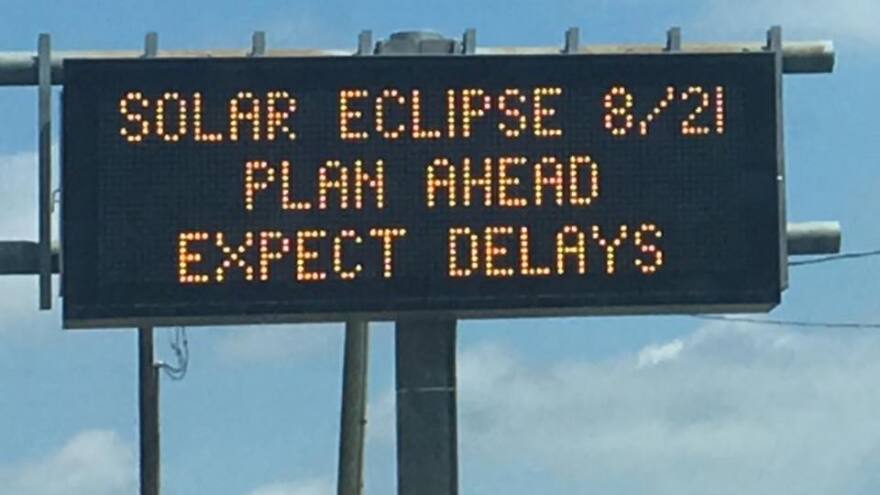Monday, August 21, 2017
Monday’s solar eclipse is bringing thousands to North and South Carolina for the experience. We hear from scientists, a meteorologist, and others about what to expect and get tips on how to view it safely.
By now, I'm sure you're aware there's an epic astronomical event headed our way - a total solar eclipse that will pass across the U.S. from Oregon to South Carolina. On Monday, the moon will pass between the sun and the earth, blotting out the sun over a huge swath of the country for a couple minutes in the middle of the day. It's the first solar eclipse to travel coast-to-coast in almost a century.

Eclipse mania has taken hold with towns within the slim path of totality cashing in on tourists moving in for a better view. Eclipse viewing glasses are selling out, causing a rush to find a spare pair and spawning knock-offs. Officials are encouraging travelers and enthusiasts to stay safe and prepare for traffic jams.
Mike Collins and his guests will get you ready for the celestial event of the year, talk about what you can expect to see in Charlotte, when, how to view the eclipse safely, what the weather might hold, as well as the science behind all of it.
Guests
Brad Panovich - Chief Meteorologist at WCNC-TV in Charlotte
Alex Olgin - WFAE Reporter
Jack Howard - Solar System Ambassador for NASA; Retired professor of physics and astronomy at Rowan-Cabarrus Community College
Dr. William Branner - Ophthalmologist, Charlotte Ophthalmology Center for Sight
Randy Wheeless - Spokesperson for Duke Energy
The 'Great American Eclipse' is Monday, August 21. In the Charlotte area, a partial eclipse will start at 1:12pm and peak at 2:41pm.
Resources:
NASA website about Eclipse 2017 - lots of great info including tips for viewing the eclipse safely, eclipse 101, and eclipse maps.
The South Carolina Emergency Management Division has issued a tip sheet for residents, visitors, and business preparing for the eclipse. View safety fact sheet here.
Enter your zipcode to find out when the solar eclipse will be visible where you live and what you can expect to see, with this tool from Vox.
Loading...



